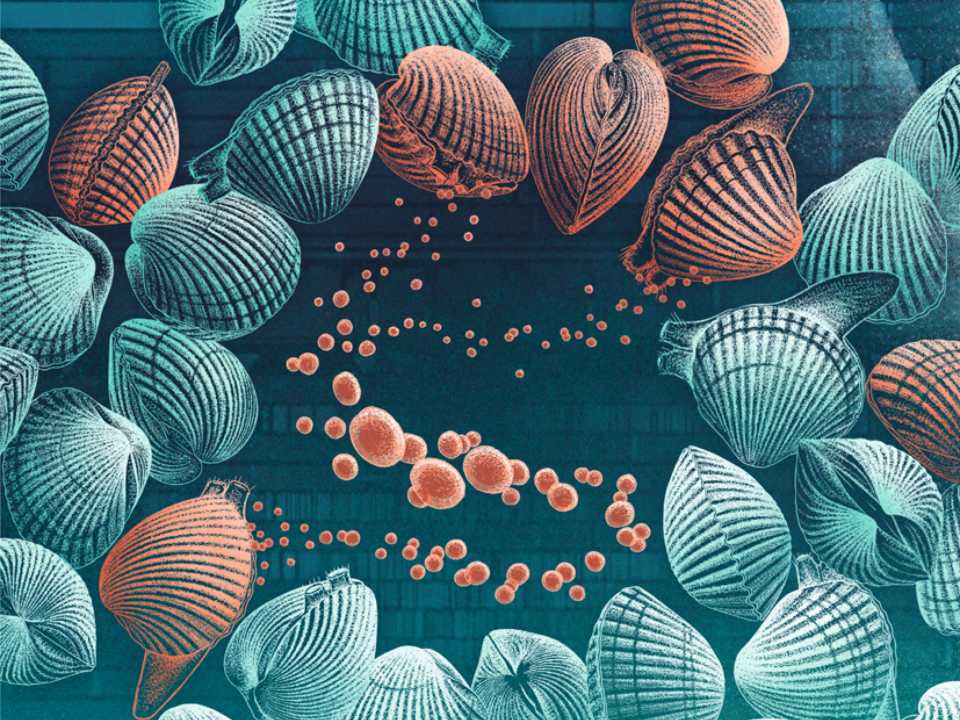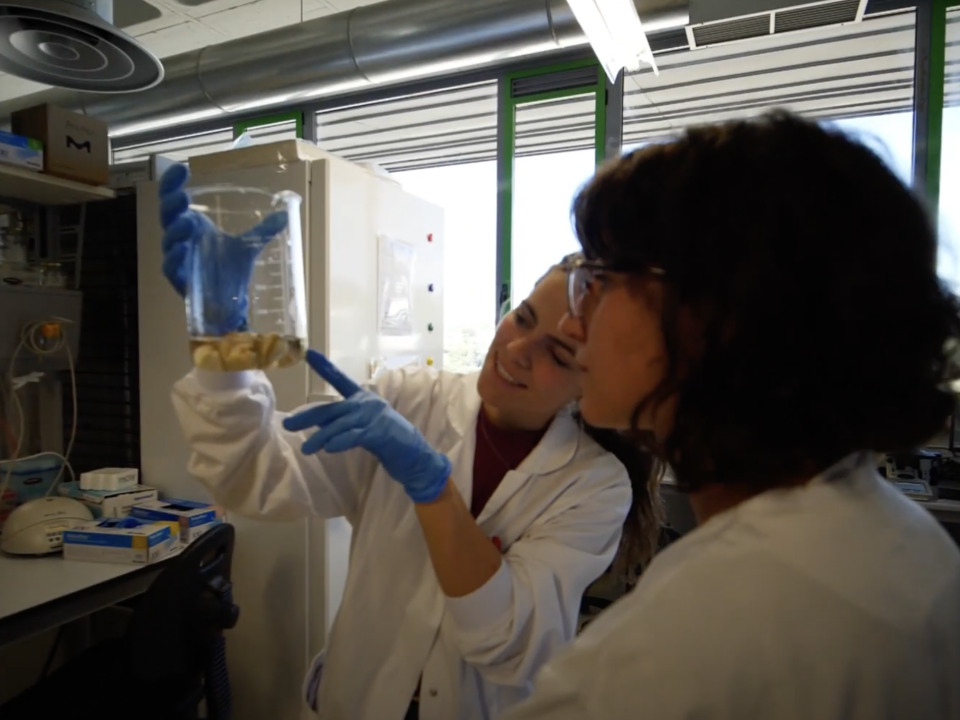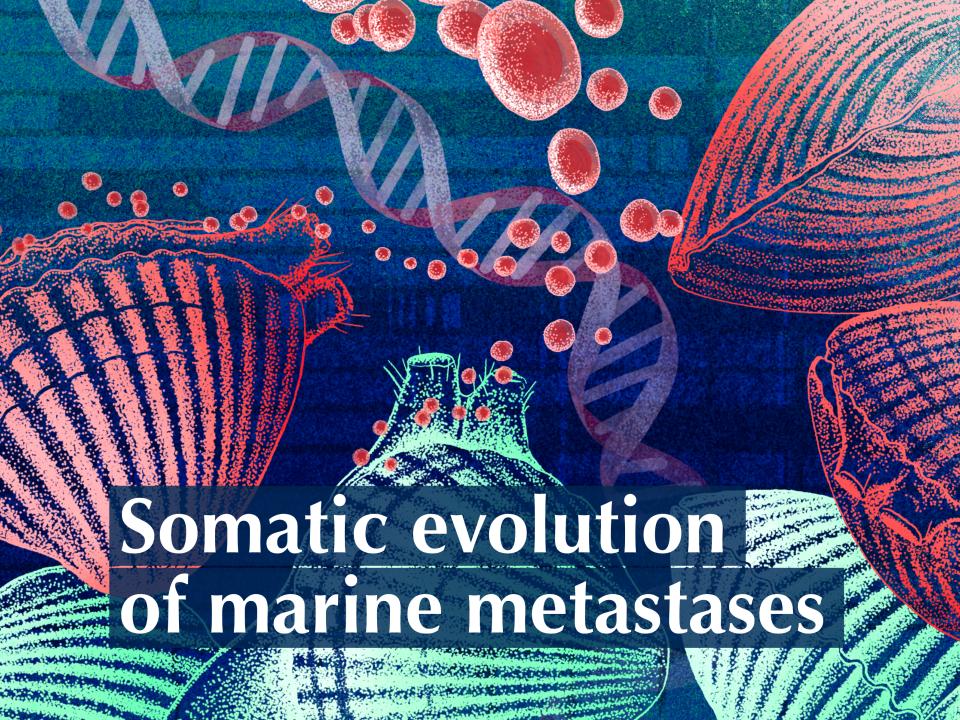Bruzos AL, Santamarina M, García D, Díaz S, Rocha S, Zamora J, Lee Y, Viña-Feás A, Quail MA, Otero I, Pequeño A, Temes J, Rodriguez-Castro J, Aramburu L, Vidal A, Villanueva A, Costas D,Rodríguez R, Prieto T, Tomás L, Alvariño P, Alonso J, Cao A, Iglesias D, Carballal MJ, Amaral AM, Balseiro P, Calado R, El Khalfi B, Izagirre U, Montaudouin X, Pade NG, Probert I, Ricardo F, Ruiz P, Skazina M, Smolarz K, Pasantes JJ, Villalba A, Ning Z, Ju YS, Posada D, Demeulemeester J, Baez-Ortega A, Tubio JMC. “Somatic evolution of marine transmissible leukemias in the common cockle, Cerastoderma edule.” Nature Cancer 4, 1575–1591 (2023). doi : https://doi.org/10.1038/s43018-023-00641-9
Researchers have sequenced the whole genomes of cockle transmissible cancers for the first time, revealing a highly unstructured genome and mechanisms that cancer cells use to avoid extinction. The study, part of the EU-funded Scuba Cancers project, focuses on cockles, animals that are sometimes affected by cancers that spread through seawater, that is contagious cancers. Affected cockles were found only in Southern European countries including France.
Two cockle contagious cancer lineages were identified, and gene expression analyses suggested the same cellular origin for both. The recurrent cellular origin on the hemolymphatic system may reflect an exclusive capability of cancer cells to exploit the transmission opportunities offered by the open circulatory system of bivalves.
These tumours showed a unique genetic instability, with cancer cells containing different numbers of chromosomes, an early whole genome duplication or horizontal transfer of mitochondrial DNA from transient hosts that has happened up to nine times throughout evolution. Despite this, cancers survive and spread, defying the conventions of chromosomal instability in other cancers. Notably, the amplification of oncogenes CCND3, MDM2 and MYC, and deletion of MGMT gene stood out as they have already been reported as drivers in human cancers.
This research, published in Nature Cancer, represents a significant advance in addressing the evolution and survival of these transmissible cancers in an unconventional marine species, providing valuable findings to better understand cancer.
To know more:
https://cancercommunity.nature.com/posts/evolutionary-insights-into-cockle-transmissible-cancers
To read the paper:
https://www.nature.com/articles/s43018-023-00641-9
BOREA contact: Alicia L Bruzos, albruzos@gmail.com, https://albruzos.github.io/
Researchers have sequenced the whole genomes of cockle transmissible cancers for the first time, revealing a highly unstructured genome and mechanisms that cancer cells use to avoid extinction. The study, part of the EU-funded Scuba Cancers project, focuses on cockles, animals that are sometimes affected by cancers that spread through seawater, that is contagious cancers. Affected cockles were found only in Southern European countries including France.
Two cockle contagious cancer lineages were identified, and gene expression analyses suggested the same cellular origin for both. The recurrent cellular origin on the hemolymphatic system may reflect an exclusive capability of cancer cells to exploit the transmission opportunities offered by the open circulatory system of bivalves.
These tumours showed a unique genetic instability, with cancer cells containing different numbers of chromosomes, an early whole genome duplication or horizontal transfer of mitochondrial DNA from transient hosts that has happened up to nine times throughout evolution. Despite this, cancers survive and spread, defying the conventions of chromosomal instability in other cancers. Notably, the amplification of oncogenes CCND3, MDM2 and MYC, and deletion of MGMT gene stood out as they have already been reported as drivers in human cancers.
This research, published in Nature Cancer, represents a significant advance in addressing the evolution and survival of these transmissible cancers in an unconventional marine species, providing valuable findings to better understand cancer.
To know more:
https://cancercommunity.nature.com/posts/evolutionary-insights-into-cockle-transmissible-cancers
To read the paper:
https://www.nature.com/articles/s43018-023-00641-9
BOREA contact: Alicia L Bruzos, albruzos@gmail.com, https://albruzos.github.io/








